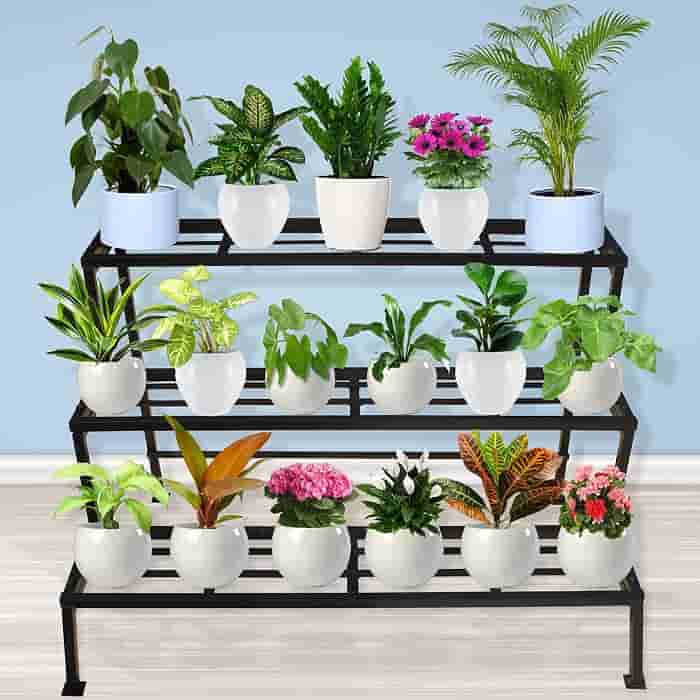Every gardener dreams of lush, green plants that thrive. However, one of the most critical aspects missing in most people’s considerations is the quality of soil. Right soil forms the building block for essential nutrients, moisture retention, and deep and strong roots. Without proper soil, the most healthy plants will still struggle. Understanding the types of soil is the secret to successful gardening.
Why Soil Quality Matters for Plant Growth?
Soil is not just dirt; it is a foundation for a plant. Healthy soil provides all three necessities, namely water, nutrients, and oxygen, to the roots of plants. It also houses beneficial microbes, which assist in fighting diseases in plants.
Therefore, poor soil means weak roots, stunted growth, and low yields. The right soil will provide your plants with everything they need. Whether it is a flower, a vegetable, or an indoor plant, soil quality makes a huge difference.
Know the Different Types of Soil
There are different types of soils, and each one hurts plants. Knowledge of which soil works best helps the plants survive.
- Sandy soil
Water drains pretty fast through this soil since sandy soil has larger particles. It possesses very few nutrients and dries out quickly. It is best suited for cacti and drought-resistant plants.
- Clay Soil
Clay soil can withhold water but is bad in terms of draining. When dry, it becomes compact and very hard making it difficult for roots to grow. However, it has improved texture with compost.
- Loamy Soil
Loamy soil is the best substrate for most plants. Its water retention property ensures only excess water is drained. Moreover, it is packed with nutrients, making it ideal for wholesome growth.
- Peaty Soil
Peaty soil is dark, rich, and full of organic matter. Moisture retention qualities make it appropriate for acid-loving plants such as ferns and azaleas.
How to Improve Your Soil for Better Growth?
If your soil is less than perfect, you can apply relatively simple techniques to improve it for plant and soil health. With a few changes here and there, you can create a nutrient-rich environment where healthy, strong roots grow.
- Improve Soil Structure with Compost Addition
Of all techniques used to improve soil quality, composting is one of the greatest methods. It improves soil by introducing organic matter, improving moisture retention, and increasing microbial activity. Compost also improves the aeration of the soil and keeps it nutrient loss-free-improving all plant types.
- Use Mulch to Guard the Soil
Mulch ensures the maintenance of moisture in soil whilst decreasing weed infestation/developments. One or two layers of organic mulch, such as wood chips or leaves, prevent the evaporation of water from the soil and the release of nutrients, which are then available for use as it decomposes. It also protects the soil from very high or very low temperatures.
- Aerate Soil to Gain Strong Roots
Compacted soil restricts airflow and hinders the absorption of water. Aerating the soil by loosening it improves drainage and roots go deeper. This enables them to have better nutrient uptake.
- Check pH Level for Nutrient Availability
Soil pH is the other qualifiable quantity that influences nutrient absorption by plants. Some plants grow best in acids while others require alkalies. Testing your soil helps to deduce whether to amend the pH with natural amendments.
The best plant nursery in Indore can provide you with the requisite soil amendments. Experts can guide you in selecting high-quality soil and fertilizers tailored to your plant’s needs.
Choose the Right Soil for Your Plants
Soil types vary in requirements. Some plants require well-drained soil, while others need moisture-retaining soil. Therefore, it is essential to study your plant before determining which soil to choose.
Environmental conditions require different types of soils. While well-draining soil works well in a humid area to prevent root rot, for a hot climatic condition, one should consider moisture-retaining soil.
For expert advice, visit the biggest nursery in Indore to find the best soil mix. They have high-quality products that ensure your plant succeeds.
The Benefits of Organic Soil
Organic soil is mostly nutrient-rich and contains no harmful chemicals. It helps to promote healthy microbial activity that helps in improving the way nutrients are absorbed by plants. It is also a retention water quality that saves a person a lot in frequent watering.
Organic soil has long-term benefits when it comes to plant health. Organic soils are being embraced by many gardeners because organic management is regarded as one of the sustainable options. Numerous nurseries, along with an online plant nursery in Indore, offer ready-mixed organic soil blends.
Where to Buy Quality Soil?
Good soil is the key ingredient for the success of plants. Nurseries offer several different mixes that contain specific soils for different kinds of plants. Here’s an online plant nursery in Indore that gives special convenience in delivery.
Before buying, check out the ingredients in the soil mix. Soil high in quality includes compost, minerals, and appropriate drainage components. Investing in suitable soil leads to healthy plant growth.
Conclusion
Healthy plants begin with soil. Understanding soil types and improving the quality of soil leads to better growth in plants. Moreover, organic options help to support sustainable agriculture. One who wants advice on soil improvement can visit any recognized nursery, and with the right soil, the garden will bloom beautifully.










Recent Comments